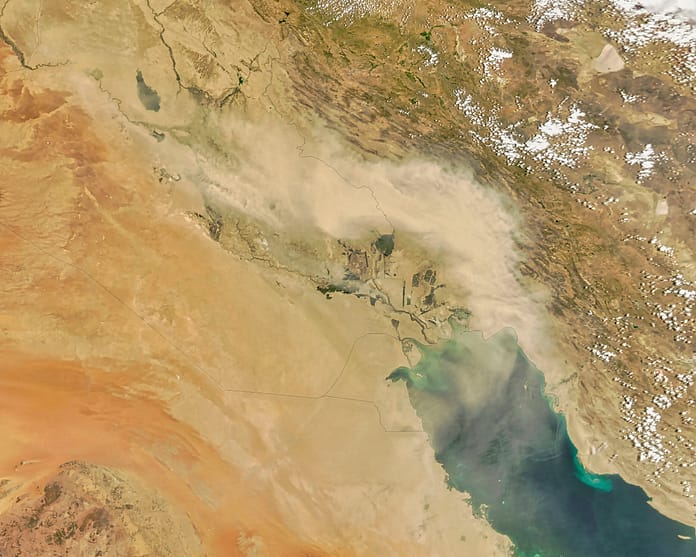Wiqaya: Mitigation of sand and dust storms generation and impacts in Iraq and the Gulf region
Southern Iraq is experiencing increasingly frequent sand and dust storms (SDS) due to climate change, desertification, poor land and water management, and conflict. SDS are causing severe health risks, agricultural losses, forced migration, and social tensions, with a reported 130,000+ climate-displaced people. Iraq ranks among the top five most climate vulnerable countries globally.
Wiqaya, which means ‘prevention’ in Arabic, is an essential project that aims to use evidence-based, locally grounded, and scalable resilient nature based water solution (RNBWS) pilots to mitigate impacts of sand and dust storms (SDS) in Iraq and the broader Gulf region. The Wiqaya project seeks achieve this by:
- Piloting and building knowledge about the effectiveness of RNBWS to mitigate SDS generation and enhance livelihoods equitably.
- Improving capability, planning, and dialogue to support scaling of SDS mitigation efforts that leverage national and regional climate finance.
Wiqaya is integrated into FCDO’s regional PHENOMENAL program and IWMI’s broader regional initiatives – Al Murunah, Al Murunah+ and Jahez – that collectively advance nature-based solutions for climate resilience. Together, they represent a coordinated regional approach, rather than isolated, stand-alone efforts.
Mitchell McTough
Mitigation of sand and dust storm generation and impacts in Southern Iraq and the Gulf region (D-0566)


